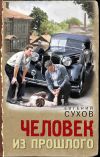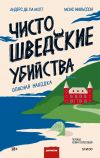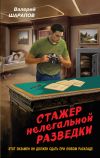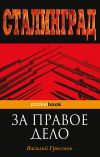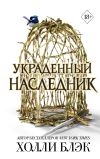Текст книги "The Mystery of the Sea / Тайна моря"
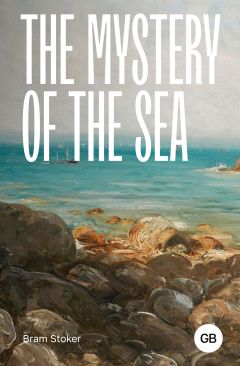
Автор книги: Брэм Стокер
Жанр: Исторические приключения, Приключения
Возрастные ограничения: +16
сообщить о неприемлемом содержимом
Текущая страница: 29 (всего у книги 31 страниц)
Chapter LII. The Skares
I whispered to Marjory and Don Bernardino:
“If they once get away we are lost! We must stop them at all hazards!” The Spaniard nodded and Marjory squeezed my hands; there was no need of speech. Then I fixed the order of battle. I was to fire first, then the Spaniard, then Marjory, each saving his fire till we knew whether another shot was required. This precaution was necessary, as we had no reserve ammunition. We took it for granted that the chambers of the revolvers were full; my one shot had been satisfactory in this respect. When the sails were set and we began rushing through the water I saw that even at the risk of betraying ourselves to our enemies we must give warning again, and so fired. There was an answering cheer from the Keystone through the fog; and then a sudden rush forward of those on our own deck. When they were close to us, the seamen hung back; but the men of the gang kept on firing as they came. Fortunately we were in a line behind cover, for I could hear the 'ping' and the tearing wood as the bullets struck the mast. I fired a shot just to show that we were armed; and heard a sharp cry. Then they fell back. In a moment or two they also had formed their plan of battle. These were men used to such encounters; and as they knew that at such times a quick rush may mean everything, they did not let the grass grow under their feet. I could see one of the seamen remonstrating with them, and hear the quick, angry tones of his voice, though I could not distinguish the words.
He pointed out into the fog, where now there was distinctly a luminous patch of light: the searchlight was moving towards us. The Keystone was coming down on us.
The blackmailer shook off the seaman and, then gave some directions to his comrades; they spread out right and left of us, and tried to find some kind of cover. I lifted Marjory and put her standing on the barrel fastened behind the mast, for I thought that as the flash of my pistol had come from the deck they would not expect any one to be raised so high. Don Bernardino and I curled down on the deck, and our opponents began to fire. In the thickening fog, and with the motion of the ship which threw us all about like ninepins, their aim was vague; fortunately no one was hit. When I thought I had a chance I fired, but there was no response; the Don got a shot and Marjory another, but there was no sound, save that of the bullets striking on wood or iron. Then Marjory, whose traditional instinct was coming into play, fired twice in rapid succession; there was a quick exclamation and then a flood of horrible profanity, the man was only winged. Again and again they fired, and I heard a groan behind me from the Don.
“What's that?” I whispered, not daring to stop or even to look back:
“My arm! Take my pistol, I cannot shoot with my left hand.” I put my hand back, and he placed the revolver in it. I saw a dark form rush across the deck and fired-and missed. I tried another shot; but the weapon only answered with a click; the chambers were exhausted. So I used the other revolver. And so for a few minutes a furious fight went on. Marjory seldom fired, she was holding herself in reserve; but before I knew what was happening my second revolver was empty. Our antagonists were no chickens at their work; there was little to teach any of them in such a method of contest as this. Some one had evidently been counting the shots, for he suddenly called out:
“Not yet boys! They've at least three shots still!” With a sudden simultaneous rush they ran back into shelter.
During this time we had been tearing through the water at our full speed. But behind us on the port quarter was the sound of a great ship steaming on. The roar of the furnaces could be heard in the trumpeting of the funnels. The boatswain's whistles were piping, and there were voices of command cutting hoarsely through the fog. The searchlight too was at work; we could see its rays high up on the mist, though they did not at the moment penetrate sufficiently to expose us to the lookout of the Keystone. Closer on our starboard quarter was another sound which came on the trailing wind, the rush of a small vessel running fast. We could hear down the wind the sharp 'slap slap' of the waves on the bows, and the roaring of the wind among the cordage. This must be the Sporran following us close with grim disregard of danger. The commander of the whaler, recognising the possibility of discovery, put his helm hard to starboard. I could myself not see through the darkness; but the seaman did and took his chance of grounding in Cruden Bay. When we had run in a little way the helm was jammed hard down again, and we ran on the other tack; for the moment we were lost to both the war ship and the yacht. Marjory looked at me appealingly and I nodded; the situation was not one to be risked. She fired another shot from her pistol. There was an immediate reply from far out on our port side in the shape of more directions spoken with the trumpet and answering piping from the boatswains. Several shots were fired towards us by the gang; they were manifestly on chance, for they went wildly wide of us. Then we could hear an angry remonstrance from the whaler captain, and a threat that if there were any more firing, he would down with his sails and take chance of being captured. One of the gang answered him:
“That packet can't capture you within the three-mile limit; it's a cruiser of Uncle Sam's and they won't risk having to lie up in harbour here till the war is over.” To which the other surlily replied:
“I wouldn't put money on it. Anyhow someone will! You keep quiet if you can. There's enough against us already if we should be caught!” The reply of the blackmailer was at least practical. I could not see what he did, but I took it that he put his pistol to the captain's head as he said with a frightful oath:
“You'll go on as you arranged with me; or I'll blow your brains out where you stand. There's quite enough against any of us, you included; so your one chance anyhow is to get out of this hole. See?” The captain accepted the position and gave his orders with a quiet delivery, to the effect that we ran first shorewards and then to starboard again till we were running back on our tracks like a hare.
Suddenly, however, this course was brought to an end by our almost running into a small vessel which as we passed I could see by its trim appearance was a yacht. We were so close for a few seconds, whilst we ran across her stern, that I shouted out:
“All right, MacRae. All safe as yet. She's trying to run out to sea. Try to tell the Keystone.” The answer was a cheer from all aboard.
As our ship swept into the fog, several of our enemies ran at us. I handed Don Bernardino his own dagger and took the bowie knife myself. Then we stood ready in case our foes should get to close quarters. They got nearly up to us, firing as they came; but we were just then sheltering behind the mast and no injury was done. They hesitated to come on, not seeing us; and we waited. As we stood with beating hearts the ship began to come to starboard again. We must have been sheltered in some way, for we did not seem to feel either wind or tide so much as before. Suddenly one of the seamen said:
“Whist! I hear breakers!” The rest paused and listened, and the captain called out:
“Hard to starboard; we are running on shore!” The ship answered at once, and we began to run across the wind, feeling the tide at the same time. But as we went, a searchlight flashed on the fog before us. We could not stop or change quick enough to quite avoid the ship from which it came, but the helm was put hard to starboard again and we ran close along side a great war ship. I could see her tower with protruding cannon as we ran by. A voice came through a speaking trumpet, and I could just catch the first words as the vessel swept by us:
“Rocks ahead!” The instinct of the seaman spoke, even at such a time, to keep another vessel from harm. The answer from our vessel was a volley of curses. Then the searchlight swept our deck, and we could see all our enemies. They were round us in a great ring and closing in upon us. They saw us, too, and with a shout began to run in. I took Marjory by the waist and ran with her to the bow of the ship; I flung her up on the bulwark and jumped up beside her. Don Bernardino joined us in a moment, and we saw the searchlight as it passed us and pierced into the fog ahead. Already the bulk of the battleship was almost lost in the mist; there was only a faint indication of her presence in a monstrous mass behind the searchlight, and the end of a spar rising above the fog. In front of us there was a great roaring of water and that sharp rushing sound which comes from the back sweep of a broken wave. Our skipper saw the danger, and in a voice like a trumpet gave his orders.
But it was too late to do anything. As the searchlight again swept our deck, I saw the ring of men break up and scatter; almost at the same moment the rays passing beyond us, fell on a low rock rising from the sea up whose sides great waves were dashing. We were rushing to it, borne by wind and tide in a terrible haste.
At that instant we struck a rock below the water. With the shock we three were thrown forward into the sea. I heard a despairing shout behind us; and then the water closed over my head.
When I rose it was in a wild agony of fear for Marjory. She had been sitting to my left on the bulwark and must therefore have fallen to seaward of me. I raised myself as well as I could and looked around; and, by God's grace, saw two hands rising above the water a few yards from me. With all my might I struggled towards them, and was able to drag my wife up to the surface. When I had her with me, though my terror and anxiety increased, I could think. At such moments the mind acts with lightning speed, and in a second or two I came to the conclusion that the rock we had struck must be amongst the Skares. If so, the only chance was to edge in with the tide and try to avoid striking any of the underlying rocks which I knew well were so deadly. Had not I seen Lauchlane Macleod come to his death through them.
It was a desperate struggle before us. The tide was racing amongst the rocks, and even were there no waves it would have been a difficult task to have won through it into shore. For myself I was a strong enough swimmer to have found my way in, even if I had had to round the outer rock and keep up to the harbour of Whinnyfold. But with Marjory to care for, too-Marjory who had only lately learned to swim… The prospect was indeed a terrible one. We must not lose a chance, and so I made my wife loose her skirts which fell away in the drag of the water; she could then swim more freely and to the best of her power.
The wind beat fiercely, and the tops of the breaking waves nearly choked us as they flew. There was just light enough down on the water level to see rocks a few yards ahead; the line of the shore rose like one dim opaque mass. In the darkness and the stress of the tide race there was little I could do, save keep Marjory's head and my own above the water and let the current bear us on. I must avoid the rocks as well as I could, and let all my efforts tend to bring us shorewards. There was not time for fears or doubting, or hoping; the moments must pass and the struggle be made, never-ending though it seemed to be.
After a few minutes I began to tire; the strain of the last few days and my late effort in reaching the whaler had begun to tell on me. I had now and again a passing thought of Don Bernardino and the friends who had been helping us; but they were all far off. The Spaniard I should probably never seen again; the others might never see us… I was relapsing into the lethargy of despair.
With a violent effort I woke to the task before me, and kept sternly on my way. Marjory was striving her utmost; but her strength was failing. Her weight was becoming deader… That nerved me to further effort, and I swam on so frantically that I drew closer to the mainland. Here there was shelter of a kind; the waves broken by the outer rocks were less forceful. The crested tops which the wind had driven on us were weakening also. There was hope in this and it kept me up. On I fought-on-on-on. Oh! would the struggle never end! I shut my teeth, and forged on fiercely. I could feel that we were going with the rush of the waves through a gully between sunken rocks.
Joy! there was shore beneath my feet, rough pebbles which rolled and worked against each other. The wave pulled us back. But my heart was renewed again. I made one more frantic effort, and swam closer to the land. Then as I saw the wave began to recoil I put down my feet, and with the last of my strength lifting Marjory in my arms I fought fiercely with the retreating wave. Staggering over the screaming pebbles, exhausted to the point of death, I bore her high up on the beach and laid her down. Then I sank lifeless beside her cold body.
The last thing I remember was the faint light of the coming dawn, falling on her marble-white face as she lay on the shore.
Chapter LIII. From The Deep
It could not have been more than a few minutes before I recovered consciousness, if indeed I were ever absolutely unconscious. It was rather the inevitable yielding to a strain on nerve and muscle and brain, than a time of oblivion. I think that I always knew that I was by the sea, and that Marjory was beside me and in trouble; but that was all. I was in the nightmare stage, when one can understand danger and realise terror; and when the only thing impossible to one is to do anything. Certainly, when I came to myself I was fully conscious of my surroundings. I was even surprised that I did not see on Marjory's pale face, the cold faint gleam of light which had been there when last I saw her. The general light had, however, increased. The strand and the rocks looked now not black, but inexpressibly drear in the uniform grey which seemed to make all colour and shape and distance into one sad flat screen. My first work was of course to attend Marjory. For a while I feared that she was dead, so white was she amid the surrounding grey. But her heart still beat, and her breast moved, though very slightly, with her breathing. I could now see that we were in Broad Haven and, so, close to my own home. I could see through the pierced rock called the “Puir Mon.” I took my wife in my arms and carried her, though with infinite difficulty for I was sorely exhausted, up the steep path, and brought her into the house. I had to break the door in again, but there was no one to help me or to interfere in the matter. I got some brandy and poured a few drops into her mouth, and laid her in a pile of rugs whilst I lit the fire. The supply of whin bushes in the wood house was not exhausted, and very soon there was a roaring fire. When Marjory opened her eyes and looked around the room, a certain amount of consciousness came to her. She imagined the occasion of her being with me was the same as when we had escaped from the flooded cave; holding out her arms she said to me with infinite love and sweetness:
“Thank God, dear, you are safe!” A moment later she rubbed her eyes and sat up, looking wildly around as one does after a hideous dream. In her survey, however, her eyes lit on her own figure, and a real wave of shame swept over her; she hastily pulled the rug round her shoulders and sank back. The habit of personal decorum had conquered fear. She closed her eyes for a moment or two to remember, and when she opened them was in full possession of all her faculties and her memory.
“It was no dream! It is all, all real! And I owe my life to you, darling, once again!” I kissed her, and she sank back with a sigh of happiness. A moment later, however, she started up, crying out to me:
“But the others, where are they? Quick! quick! let us go to help them if we can!” She looked wildly round. I understood her wishes, and hurrying into the other room brought her an armful of her clothes.
In a few minutes she joined me; and hand in hand we went out on the edge of the cliff. As we went, I told her of what had happened since she became unconscious in the water.
The wind was now blowing fiercely, almost a gale. The sea had risen, till great waves driving amongst the rocks had thrashed the whole region of the Skares into a wild field of foam. Below us, the waves dashing over the sunken rocks broke on the shore with a loud roaring, and washed high above the place where we had lain. The fog had lifted, and objects could be seen even at a distance. Far out, some miles away, lay a great ship; and by the outermost of the Skares a little to the north of the great rock and where the sunken reef lies, rose part of a broken mast. But there was nothing else to be seen, except away to south a yacht tossing about under double-reefed sails. Sea and sky were of a leaden grey, and the heavy clouds that drifted before the gale came so low as to make us think that they were the fog belts risen from the sea.
Marjory would not be contented till we had roused the whole village of Whinnyfold, and with them had gone all round the cliffs and looked into every little opening to see if there were trace or sign of any of those who had been wrecked with us. But it was all in vain.
We sent a mounted messenger off to Crom with a note, for we knew in what terrible anxiety Mrs. Jack must be. In an incredibly short time the good lady was with us; and was rocking Marjory in her arms, crying and laughing over her wildly. By and bye she got round the carriage from the village and said to us:
“And now my dears, I suppose we had better get back to Crom, where you can rest yourselves after this terrible time.” Marjory came over to me, and holding my arm looked at her old nurse lovingly as she said with deep earnestness:
“You had better go back, dear, and get things ready for us. As for me, I shall never willingly leave my husband's side again!”
The storm continued for a whole day, growing rougher and wilder with each hour. For another day it grew less and less, till finally the wind had died away and only the rough waves spoke of what had been. Then the sea began to give up its dead. Some seamen presumably those of the Wilhelmina were found along the coast between Whinnyfold and Old Slains, and the bodies of two of the blackmailers, terribly mangled, were washed ashore at Cruden Bay. The rest of the sailors and of the desperadoes were never found. Whether they escaped by some miracle, or were swallowed in the sea, will probably never be known.
Strangest of all was the finding of Don Bernardino. The body of the gallant Spanish gentleman was found washed up on shore behind the Lord Nelson rock, just opposite where had been the opening to the cave in which his noble ancestor had hidden the Pope's treasure. It was as though the sea itself had respected his devotion, and had laid him by the place of his Trust. Marjory and I saw his body brought home to Spain when the war was over, and laid amongst the tombs of his ancestors. We petitioned the Crown; and though no actual leave was given, no objection was made to our removing the golden figure of San Cristobal which Benvenuto had wrought for the Pope. It now stands over the Spaniard's tomb in the church of San Cristobal in far Castile.
Appendices
Appendix A
“In the First Edition of his work “The Two Bookes of Francis Bacon, of the proficience and advancement of Learning, divine and humane” published at London in 1605, the Author only alludes briefly to his Bi-literal Cipher. Speaking of Ciphers generally (Booke II) he says:
“But the vertues of them, whereby they are to be preferred, are three; that they be not laborious to write and reade; that they bee impossible to discypher; and in some cases, that they bee without suspicion. The highest Degree whereof, is to write OMNIA PER OMNIA; which is undoubtedly possible, with a proportion Quintuple at most, of the writing infoulding, to the writing infoulded, and no other restrainte whatsoever.”
It was not till eighteen years later that he gave to the public an explanation of this 'infoulding' writing. In the rarely beautiful edition of the work in Latin printed in London by Haviland in 1623, the passage relating to secret writing is much amplified. Indeed the entire work is completed in many ways and greatly enlarged as is shown by its title.
“De Dignitate et Augmentis Scientiarum. Libros IX.”
The following is his revised statement:
“Ut vero suspicio omnis absit, aliud Juventum subijciemus, quod certe, cum Adolescentuli essemus Parisiis, excogitavimus; nec etiam adhuc visa vobis res digna est, quae pereat. Habet enim gradum Ciphrae altissimum; nimirum ut Omnia per Omnia significari possint: ita tamen, ut Scriptis quae involuitut, quintuplo minor sit, quam ea cui involvatur: Alia nulla omnino requiritur Conditio, aut Restrictio. Id hoc modo fiet. Primo, universae literae Alphabeti in duas tantummodo Literas soluantur, per Transpositionem earum. Nam Transpositis duarum Literarum, per Locos quinque, Differentiis triginta duabus, multo magis viginti quatuor (qui est Numerus Alphabeti apud nos) sufficiet. Huius Alphabeti. Exemplum tale est.”
“But for avoiding suspicion altogether, I will add another contrivance, which I devised myself when I was at Paris in my early youth, and which I still think worthy of preservation. For it has the perfection of a cipher, which is to make anything signifying anything; subject however to this condition, that the infolding writing shall contain at least five times as many letters as the writing infolded; no other condition or restriction is required. The way to do it is this: First let all the letters of the Alphabet be resolved into transpositions of two letters only. For the transposition of two letters through five places will yield thirty-two differences; much more twenty-four, which is the number of letters in our Alphabet. Here is an example of such an Alphabet.
A aaaaa
B aaaab
C aaaba
D aaabb
E aabaa
F aabab
G aabba
H aabbb
I abaaa
K abaab
L ababa
M ababb
N abbaa
O abbab
P abbba
Q abbbb
R baaaa
S baaab
T baaba
V baabb
W babaa
X babab
Y babba
Z babbb
“Nor is it a slight thing which is thus by the way effected. For heare we see how thoughts may be communicated at any distance of place by means of any objects perceptible either to the eye or ear, provided only that those objects are capable of two differences; as by bells, trumpets, torches, gunshots, and the like. But to proceed with our business. When you prepare to write, you must reduce the interior epistle to this bi-literal alphabet. Let the interior epistle be:

“Have by you at the same time another alphabet in two forms; I mean in which each of the letters of the common alphabet, both capitals and small, are exhibited in two different forms, – any forms that you find convenient.”
[For instance, Roman and Italic letters; “a” representing Roman and “b” representing Italic.]
“Then take your interior epistle, reduced to the bi-literal shape, and adapt it, letter by letter, to your exterior epistle in the biform character; and then write it out. Let the exterior epistle be:

From the above given dates it would almost seem as if Bacon had treated the matter in a purely academic manner, and had drawn out of his remembrance of his younger days a method of secret communication which had not seen any practical service. Spedding mentions in his book “Francis Bacon and his Times” that Bacon may have got the hint of the 'biliteral cypher' from the work of John Baptist Porta, “De occultis literarum notis,” reprinted in Strasburg in 1606, but the first edition of which was published when Porta was a young man. It is however manifest from certain evidence, that Bacon practised his special cipher and used it for many years. Lady Bacon, mother of the philosopher, writing in 1593, to her son Anthony, elder brother of Francis, speaking of him, Francis, says, “I do not understand his enigmatical folded writing.” Indeed it is possible that many years before he had tried to have his invention made use of for public service. His was an age of secret writing. Every Ambassador had to send his despatches in cipher, for thus-and even then not always-could they be safe from hostile eyes. The thousands of pages of reports to King Philip made by Don Bernardino de Mendoza, the Spanish Ambassador at the Court of Queen Elizabeth, before the time of the Armada, were all written in this form; the groaning shelves of the records at Simancas bear evidence of the industry of such political officials and of their spies and secretaries. An ambitious youth like Francis Bacon, son of the Lord Keeper, and so traditionally and familiarly in touch with Court and Council, who in his baby days was addressed by Elizabeth as her “young Lord Keeper,” and who spent the time between his sixteenth and eighteenth years in the suite of the English Ambassador in Pa-ris, Sir Amyas Paulet, must have had constant experience of the need of a cipher which would fulfill the conditions which he laid down as essential in 1605-facility of execution, impossibility of discovery, and lack of suspiciousness. When, in a letter of 16 Sept. 1580, to his uncle Lord Burghley, he made suit to the Queen for some special employment, it is possible that the post he sought was that of secret writer to Her Majesty. His letter, though followed up with a more pressing one on 18th October of the same year, remained unanswered. Whatever the motive or purpose of these last two letters may have been, it remained on his mind; for eleven years later we find him again writing to his uncle the Lord Keeper: “I ever have a mind to serve Her Majesty,” and again, “the meanness of my estate doth somewhat move me.” In the interval, on 25th August, 1585, he wrote to the Right Hon. Sir Francis Walsingham, Principal Secretary to the Queen: “In default of getting it, will go back to course of practice (at Bar) I must and will follow, not for my necessity of estate but for my credit's sake, which I fear by being out of action will wear.” His brother Anthony spent the best part of his life abroad, presumably on some secret missions; and as Francis was the recipient of his letters it was doubtless that “folded writing” which so puzzled their mother which was used for the safety and secrecy of their correspondence. Indeed to what a fine point the biliteral method must have been brought by Bacon and his correspondents is shown by the extraordinarily minute differences given in his own setting forth of the symbols for “a” and “b” etc., in the “De Augmentis” of 1623 and later. In the edition printed in Latin in Paris the next year, 1624, by Peter Mettayer, the differences, possibly through some imperfection of printing, are so minute that even the reader studying the characters set before him, with the extra elucidation of their being placed under their proper headings, finds it almost impossible to understand them. The cutting for instance of the “n” which represents “a” and that which represents “b” seems, even after prolonged study, to be the same.
It is to be noticed that Bacon in setting forth the cipher in its completeness directs attention to its infinite possibilities and variations. The organised repetition of any two symbols in combinations of not more than five for one or both symbols may convey ideas. Not letters only but colours, bells, cannon, or other sounds may be used with effect. All the senses may be employed, or any or some of them, in endless combinations.
Again it is to be noted that even in his first allusion to the system in 1605, he says, “to write Omnia per Omnia, which is undoubtedly possible, with a proportion Quintuple at most, of the writing infoulding, to the writing infoulded.”
“Quintuple at most!” But in the instances of his system which he gives eighteen years later, when probably his time for secret writing as a matter of business had ceased, and when from the lofty altitude of the Woolsack he could behold unmoved any who had concealments to make-provided of course that they were not connected with bribes-there is only one method given, that of five infolding letters for each one infolded. In the later and fuller period he speaks also of the one necessary condition “that the infoulding writing shall contain at least five times as many letters as the writing infoulded”-
Even in the example which he gives “Do not go till I come,” there is a superfluous letter, – the final “e;” as though he wished to mislead the reader by inference as well as by direct statement.
Is it possible that he stopped short in his completion of this marvellous cipher? Can we believe that he who openly spoke from the first of symbols “quintuple at most,” was content to use so large a number of infolding letters when he could possibly do with less? Why, the last condition of excellence in a cipher which he himself laid down, namely, that it should “bee without suspicion,” would be endangered by a larger number than was actually necessary. It is by repetition of symbols that the discovery of secret writing is made; and in a cipher where, manifestly, the eye or the ear or the touch or the taste must be guided by such, and so marked and prolonged, symbols, the chances of discovery are enormously increased. Doubtless, then, he did not rest in his investigation and invention until he had brought his cipher to its least dimensions; and it was for some other reason or purpose that he thus tried to divert the mind of the student from his earlier suggestion. It will probably be proved hereafter that more than one variant and reduction to lower dimensions of his biliteral cipher was used between himself and his friends. When the secrets of that “Scrivenry” which, according to Mr. W. G. Thorpe in his interesting volume, “The Hidden Lives of Shakespeare and Bacon,” Bacon kept at work in Twickenham Park, are made known, we shall doubtless know more on the subject. Of one point, however, we may rest assured, that Bacon did not go back in his pursuance of an interesting study; and the change from “Quintuple at most” of the infolding writing of 1605, to “Quintuple at least,” of 1623, was meant for some purpose of misleading or obscuration, rather than as a limitation of his original setting forth of the powers and possibilities of his great invention. It will some day be an interesting theme of speculation and study what use of his biliteral cipher had been made between 1605 and 1623; and what it was that he wished to conceal.
Правообладателям!
Это произведение, предположительно, находится в статусе 'public domain'. Если это не так и размещение материала нарушает чьи-либо права, то сообщите нам об этом.


















